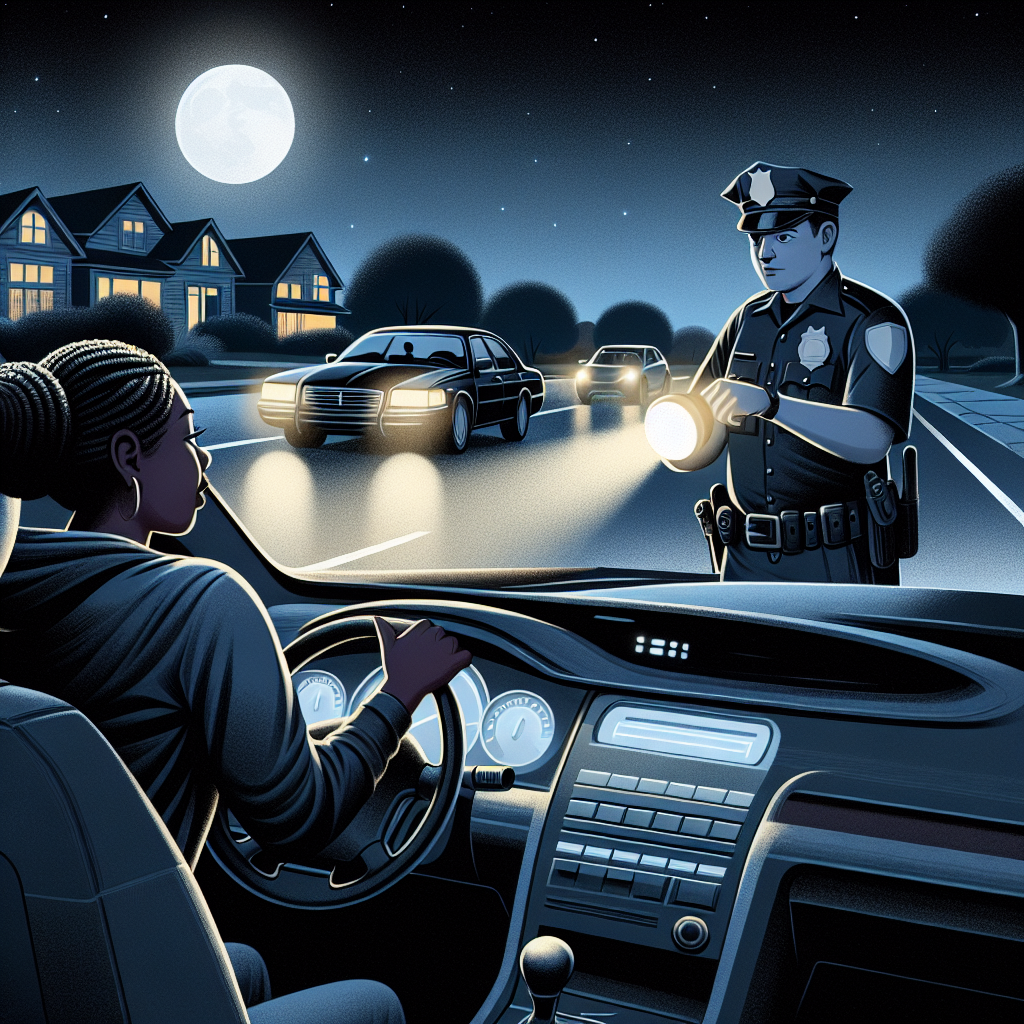Getting pulled over by the police can be an unsettling experience for anyone. However, knowing the proper steps to take can ensure that the interaction goes smoothly and painlessly. This article provides a detailed guide on how to act when the police pull you over in the USA, covering everything from the moment you see the flashing lights to the end of the encounter.
Initial Steps When You See the Police Lights
When you first notice the police flashing lights behind you, it’s important to react in a calm and composed manner. Here are the immediate steps you should follow:
- Pull Over Safely: Find a safe spot to pull over, such as a well-lit area or the shoulder of the road. Use your turn signal to indicate your intention to pull over.
- Stay Calm: Take a deep breath and remain composed. Panic can lead to unnecessary mistakes or tension.
- Turn Off Your Engine: Once you have stopped, turn off your car engine to show the officer that you are not planning to flee.
- Roll Down Your Window: Lower your window completely to communicate clearly with the officer.
- Keep Your Hands Visible: Place your hands on the steering wheel where the officer can see them. Avoid making any sudden movements.
Documents to Have Ready
Having your documents organized and readily accessible will speed up the process and keep the interaction smooth. Be prepared to present these items:
- Your driver’s license
- Vehicle registration
- Proof of insurance
Communicating with the Officer
Effective communication with the officer can make a significant difference. Here are some tips:
- Greet Politely: Start with a polite greeting such as “Good evening, officer.” Establishing respect early can set a positive tone for the interaction.
- Stay Honest: If the officer asks why you think you were pulled over, provide a brief and honest response. Avoid long explanations or excuses.
- Answer Questions Clearly: Respond to the officer’s questions clearly and concisely. Do not volunteer additional information that was not asked.
- Avoid Arguing: If you disagree with the reason you were pulled over, stay polite and avoid arguing. You can contest the matter later in court if necessary.
Your Rights as a Driver
It’s crucial to understand your rights during a traffic stop to protect yourself legally. Here are key points to remember:
- Right to Remain Silent: You have the right to remain silent except for providing your name and basic identification details. Politely state, “I choose to remain silent,” if you prefer not to answer additional questions.
- Right to Refuse a Search: You have the right to refuse a search of your vehicle unless the police have probable cause or a warrant. Clearly state, “I do not consent to a search,” if you do not wish to allow it.
- Right to Legal Counsel: If you are arrested, you have the right to speak with an attorney. You can say, “I would like to speak with an attorney,” and remain silent thereafter.
If Issued a Ticket
If the officer decides to issue a ticket, accept it without arguing. Here is what you should do:
- Accept the ticket politely
- Sign the ticket if required (this is not an admission of guilt)
- Follow the instructions on the ticket for paying the fine or contesting it in court
Special Considerations
There are specific considerations to keep in mind during a traffic stop:
- Nighttime Stops: Turn on your interior car lights so the officer can see inside your vehicle. This can help put the officer at ease.
- Passengers: Advise your passengers to remain quiet and calm. Their actions can affect the outcome of the stop.
- Recording the Stop: You have the right to record the traffic stop as long as it does not interfere with the officer’s duties. Inform the officer that you are recording for transparency.
Post Traffic Stop
After the traffic stop concludes, consider these steps:
- Review the details of the stop while your memory is fresh
- Consult with an attorney if you have legal questions or if you plan to contest the ticket
- Follow through with any required court appearances or payments
Conclusion
Knowing how to act when the police pull you over can help minimize stress and potential issues. By staying calm, being prepared, and understanding your rights, you can ensure a smoother interaction. If you feel your rights were violated, consult with a legal professional to discuss your options. Remember, the key is to remain respectful and composed throughout the encounter.

